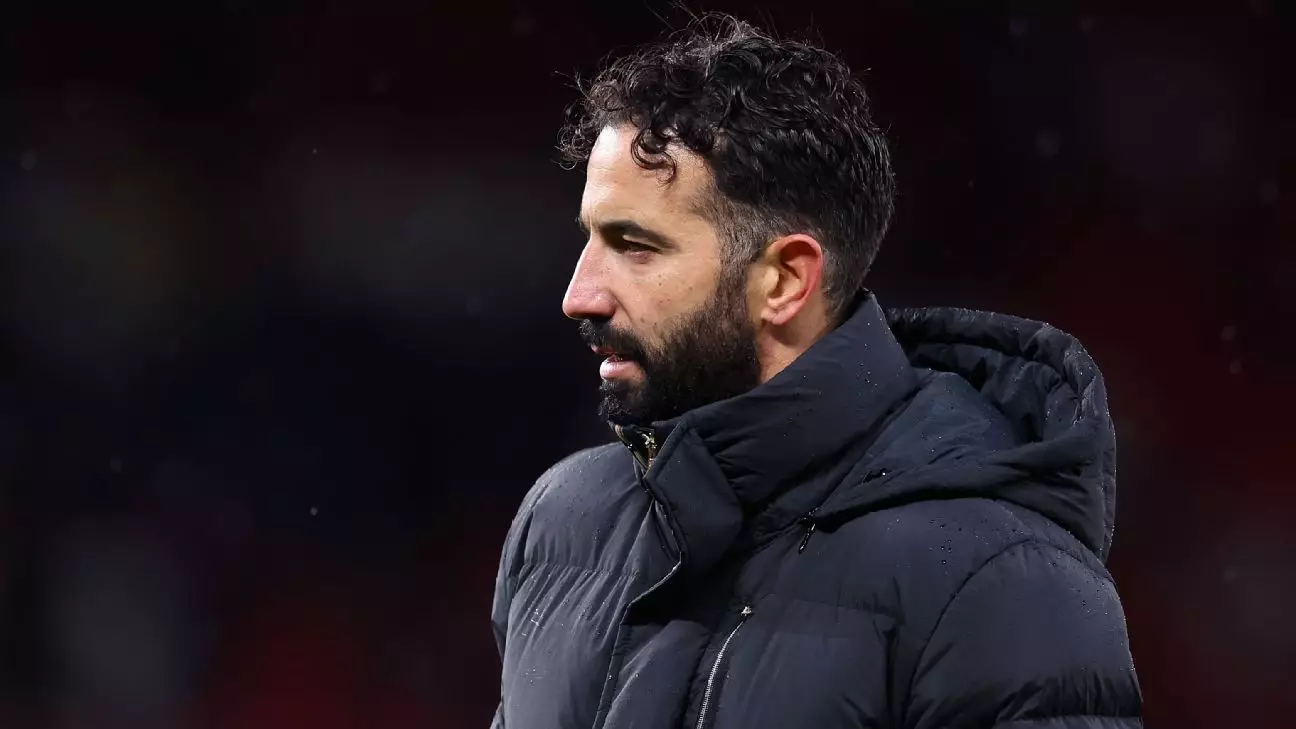The recent clash between Manchester United and Nottingham Forest has served as a stark reminder of the monumental task facing head coach Ruben Amorim. As United suffered a disappointing 3-2 defeat at Old Trafford, the discrepancy in expectations between two clubs at contrasting stages of development was glaringly obvious. In the backdrop of a rich history and inflated ambitions, United’s erratic performances signal a club in distress, grappling with a crisis of identity. Meanwhile, Forest, fresh off a dismal championship record from the previous year, seized an opportunity to deliver an unforgettable result, marking their first victory at United’s historic ground in three decades.
Co-owner Sir Jim Ratcliffe’s acknowledgment that the team has become “mediocre” resonates with fans who witnessed the glaring deficiencies on the pitch. Amorim’s remarks post-match reflected both his understanding of the situation and the weight of the task before him. Despite the immediate chaos, the pressing need for improvement was articulated, emphasizing that losing in such a manner impacts not just the players, but all associated with the club. Amorim’s resolve to maintain focus on performance and improvement offers a glimpse of hope amid a turbulent spell.
Tactics can only take a team so far when the execution is marred by fundamental errors. United’s first setback came alarmingly early, just within 90 seconds; defense lapses allowed Nikola Milenkovic to head home from a corner. This set-piece vulnerability underscores a concerning trend, as previously highlighted by the two goals conceded to Arsenal a few days prior.
The narrative did not improve in the second half, as further blunders emerged from key players Bruno Fernandes and goalkeeper André Onana. Fernandes, perhaps too ambitious in his flick attempt, inadvertently laid the groundwork for a goal that should have been prevented. Onana’s fallibility was on vivid display with a speculative long-range shot from Morgan Gibbs-White finding its way into the net, reminiscent of some of his low points from the past season.
These successive blows paint a picture of a team that not only struggles tactically but also lacks confidence at the moment. Each error within the defensive third resonates deeper than mere statistic; they illustrate a dysfunctional unit that cannot rely on its backbone in crucial moments.
Despite this grim reality, Amorim’s experience in handling adversity—previously managing Sporting CP through turbulent waters—could prove invaluable. His recognition that Manchester United holds immense attention compared to his prior role is a testament to the pressurized environment surrounding the club. However, the shared sentiment of needing time and consistent practice embodies the essence of building a resilient squad.
The Portuguese tactician’s perspective enables him to compartmentalize the current turmoil, leaning on past experiences to guide his approach. He understands that reactions to setbacks should be measured and progressive. This steadying influence may serve as a pivotal element in revitalizing a team in dire need of stability and confidence.
Yet, the path ahead remains fraught with challenges. Upcoming fixtures against FC Viktoria Plzen in the UEFA Europa League and a high-stakes Manchester derby are looming. Following those contests, matches against formidable opponents, such as Liverpool and Tottenham, await. In this unforgiving stretch, results must improve, or the ramifications will continue to be felt across the club.
The current league standing compounds matters, leaving Manchester United in a precarious 13th position with a mere 19 points—significantly the lowest tally the club has seen after 15 games since the 1986-87 season. This situation underscores the urgency for Amorim to rally the team toward a more cohesive performance that can transcend individual errors and restore some semblance of pride associated with the Manchester United brand.
As Manchester United endures this difficult transition, the call for unity becomes paramount. The players, coaching staff, and the broader fan base must recognize that this moment is more than just a mundane blip in the radar; it reflects years of mismanagement and growing pains. Amorim’s emphasis on focusing on processes rather than fleeting outcomes resonates within the club’s supporters, who yearn for a return to the glory days.
Ultimately, United’s ambition must align with reality, and for Amorim, this represents a crucial juncture in his managerial career—one that could define the trajectory of not just his personal aspirations but also of a storied club in desperate need of revitalization. Time will tell how this narrative unfolds, but the need for transformation is clear.

